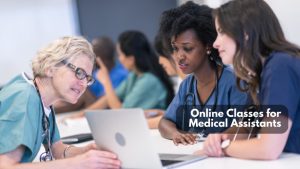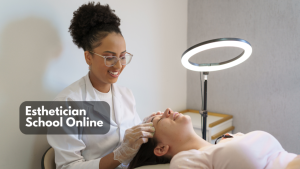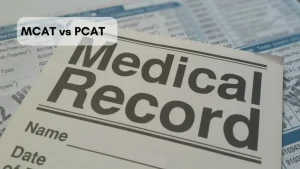New research shows that 2022 nursing school enrollments dipped by 16.9%. At the same time, 78,191 qualified applicants were declined by various universities for failing to demonstrate a solid understanding of the nursing prerequisites. Knowing about the good classes to take before nursing school increases an applicant’s success chance by demonstrating a solid understanding of the course topic. In this blog, our nursing experts explain the pre-nursing classes to take before college. We also take exams for nursing students looking to enhance their grades, pass the licensure test, or get admitted into the college.
The Fundamental of Nursing
The fundamentals of nursing are generally the first class in the pre-nursing learning. This class offers a foundation knowledge of the essential concepts and skills needed to perform in a nursing school. Learners delve into patient assessments, cultural differences, nursing processes, health patterns, and nursing frameworks. Lessons on the fundamentals of nursing differ depending on the college. However, typical classes cover patient relations, the motion of exercises and body mechanics, adult patient care unit, environmental health, and the practical nurse.
The Fundamentals of Nursing Clinicals
Most colleges offer this class under the name Fundamentals of Nursing Clinical Lab. The session simulates and replicates selected client situations, allowing the students to demonstrate their critical skills and understanding of primary healthcare needs. It begins with exploring therapeutic communication skills to provide comprehensive client care. Then, learners study how to identify, monitor, and report vital signs.
Students seeking opportunities in BSN and CRNA study the fundamental care techniques, including grooming, bathing, feeding, and infection control. They learn medication administration, wound dressing and assessments, and the emergency response.
Human Anatomy and Physiology 1 &2
Human Anatomy and Physiology are administered in two classes. Part 1 of the A&P covers the foundational concepts, including the basic anatomy, physiology foundations, systems overview, and pathophysiology basics. Part 2 of the A&P delves deeper into the specific human organs and systems. Students study the cardiovascular, respiratory, digestive, renal, and neural systems. Part 2 also covers various clinical applications of the concepts learned in understanding vital signs, symptoms, and effective nursing care interventions for various conditions. The sessions end with explaining pathophysiology in nursing, an idea that builds upon the basics learned in part 1 of A&P.
Pharmacology 1 &2
Pharmacology classes are also administered in two parts, 1 and 2. Pharmacology 1 introduces learners to the fundamentals of pharmacology. It also studies how these principles apply to the nursing practice. The classes begin by covering drug classifications and drug actions. Learners also delve into pharmacokinetics to study the movement of drugs through the body systems. Pharm 1 also introduces learners to dosages, drug interactions and effects, regular drug classes, and ethical considerations in drug admission.
Pharmacology 2 expounds on the concepts of pharmacology 1. It begins by delving into the complex drug administrations for particular conditions. The classes further explain pharmacotherapy for special populations, evidence-based practice in pharmacology, pharmacological interventions, and emerging trends.
Mental Health and Psychology
Mental health and psychology are foundational classes that introduce learners to the mental and psychological aspects of nursing. Sessions begin with an overview of human psychology, including human development, cognition, personality theories, and perceptions. Learners delve into the biopsychosocial perspectives of human behaviors and mental processes. The last two classes are on mental health disorders and psychological assessments and interventions. Some colleges also include cultural competence in mental health and legal and ethical considerations.
Chemistries
Prospective nursing students must understand the chemistry principles and applications relevant to nursing care. Pre-nursing chemistries take learners through the foundational topics, including chemical bonding, compounds, elements, and atomic structures. Learners explore the equations, chemical formulas, periodic table elements, and foundational biochemistry. Classes on acids and bases explain the acid-base reactions and their applications in nursing. Learners also get introduced to organic chemistry principles and chemistry health care applications.
Pathophysiology
A strong foundation in pathophysiology entails learning the underlying diseases and disorders that form the basis of nursing care. Throughout the classes, learners explore normal vs. altered human physiology at the cellular, tissue, and organ level. The lectures include understanding the disease processes, their pathophysiological mechanism, and clinical correlations. Students must also understand the impact of pathophysiological changes on patient assessment, interventions, medical administrations, and nursing outcomes. The classes end by understanding pathophysiological treatment implications and the holistic approaches to various disease processes.
How to Choose Good Classes to Take Before Nursing School
The pre-nursing classes are determined by the prospective course a learner intends to pursue. Colleges offer different pre-nursing classes for BSN, CRNA, LPN, and MSN programs. Successful applicants should check their course curriculum or consult their school’s admission department for any questions.
Good Classes to Take Before Nursing School: The Parting Shot
Knowing the good classes to take before nursing school sets the stage for adequate psychological preparedness before joining a nursing school. By taking the classes, prospective nursing students can decide whether they are cut for the course or will have difficulty grasping the core concepts. Contact our nursing experts to delegate your class or exams for guaranteed success.



